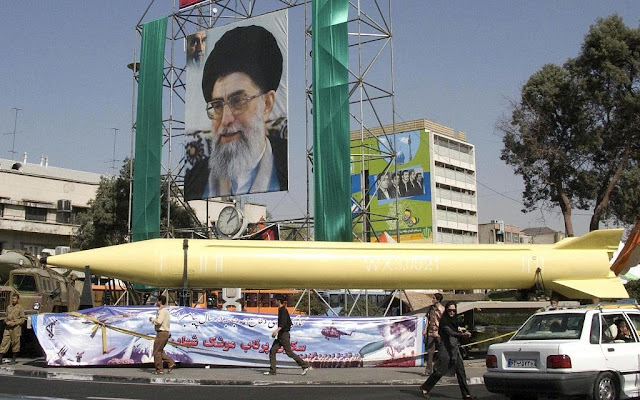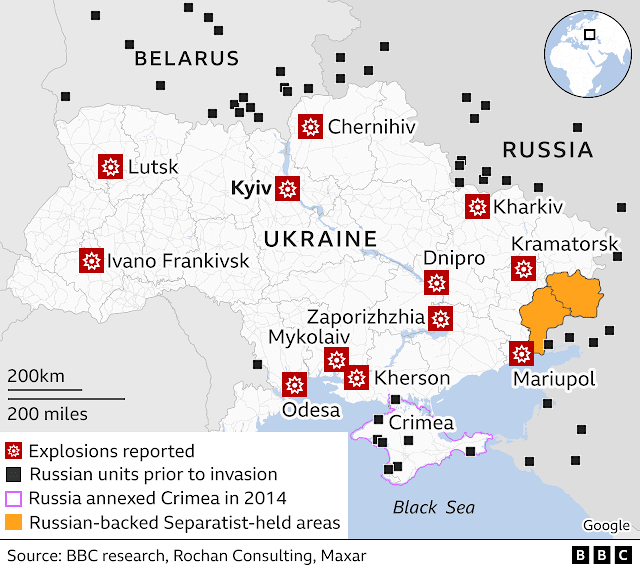TOPIC: The Possibility of Nuclear Proliferation in the Middle East
Today, nuclear talks resumed in Vienna in an attempt to salvage the 2015 nuclear deal. The talks began on a flat foot, with European diplomats viewing Iranian demands as nearly impossible to meet. If the talks continue their current trajectory, then Iran will be ever closer to acquiring a nuclear bomb. In a previous article we explored the possibility of an Israeli strike and what implications this may have, but today we do the opposite. Now we will discuss the future of geopolitics in a Middle East where Tehran successfully possesses nuclear weapons.
Proliferation Across the Gulf
The most predictable outcome of a nuclear armed Iran would be the proliferation of nuclear weapons across the region, particularly across the Persian Gulf in Saudi Arabia. For Riyadh, Tehran is its key adversary, with Crown Prince Mohammed Bin Salman viewing Iranian influence as the major stopping block against Saudi Arabia assuming a hegemonic position in the Middle East. As such, a nuclear Iran would all but ensure a Saudi attempt to gain its own bomb. Mohammed Bin Salman openly stated in 2018 that if Tehran were to develop nuclear weapons, then Riyadh would quickly 'follow suit.' From here, Saudi Arabia would have a number of possible routes to advance itself to the status of a nuclear power as quickly as possible.
Firstly, it could attempt to purchase a nuclear power reactor from a major international supplier and then build a domestic reprocessing plant that could eventually yield enough weapons-grade plutonium. The problem with this method is not only is it a highly technical route, but that the processing of this grade of plutonium could take up to five years - a rate far too slow for the rapidly changing world of geopolitics. A quicker option would be to turn towards its eastern ally in Pakistan. Saudi Arabia played a key role in financing Islamabad's nuclear weapons programme, allegedly receiving a commitment in return that if it was necessary, Pakistan would reciprocate the favour. Much of this depends on the stability of Pakistan's internal situation as to whether or not it wishes to entrench itself in Middle Eastern geopolitics. Yet Islamabad is fond of the Saudi's and it could be disastrous for Pakistan to be seen to be abandoning the guardians of Mecca and Medina whilst nuclear Iran threatened its security.
A plausible alternative to either of these scenarios would be for the United States to extend its nuclear umbrella over the Saudi Kingdom, though this could have domestic opposition. But for Saudi leadership this would be a very popular solution, particularly when considering recent question marks that have appeared over American and particularly Joe Biden's commitments to Middle Eastern security.
Across the Middle East
A whole book could be written on the implications of a nuclear Saudi Arabia and Iran, but I will endeavour to keep it concise. In short, the possibility of proliferation would drastically increase with the possibility for the situation to spiral out of control. Turkish President Recep Tayyip Erdogan previously stated he 'cannot accept' the argument from Western powers that Turkey should not have its own nuclear arsenal. With a resurgent foreign policy and issues within NATO, Turkey would be one of the first to pursue an arsenal of its own. With this comes a whole assortment of worries for the Balkans and Levant, who wearily observe Turkey's neo-Ottoman agenda.
Furthermore, even nations committed to nuclear disarmament could change tact. Egypt and the UAE would be key contenders, as despite a cosy relationship with the Saudis, neither would wish to expose itself to the possibility of Saudi domination. Egypt in particular, when it recovers from its internal strife, may seek to reassert its position within the Arab world, where it was once the leading power. If Riyadh and Tehran have gone nuclear, it will be difficult for Cairo to ignore this as a possibility.
Thus, if any number of nations then developed their own arsenals, this would only multiply the possible other nations that would develop nuclear ambitions. It could be the 'domino effect', taken to the extreme. Though the concept of an Israeli strike remains nightmarish, Israel might not be expected to be as isolated internationally as some commentators may think. Indeed, Arab states may tacitly push for these strikes if the JCPOA fails, with only the small Jewish state capable of preventing a Middle Eastern nuclear arms race.
 |
| (photo credit: AP/Hasan Sarbakhshian) |


Comments
Post a Comment